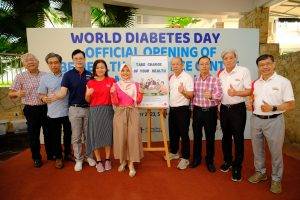On the 5 Oct (Tuesday), Singapore’s Health Sciences Authority (HSA) has issued an advisory on the use of ivermectin for the treatment of COVID-19 infection. This came after the news of a Singaporean lady who got hospitalised after she took the medication ivermectin to ‘protect herself’ from the infection.
What happened?
A 65 year old Singaporean lady took 4x 3mg ivermectin tablets, for a duration of 2 days, after she was convinced by her friends that it could protect against COVID-19 infection. She developed fever of 39.3 degree Celsius, inflammation on her joints, and severe vomiting.
What is Ivermectin?
Ivermectin is a prescription-only medicine registered in Singapore only for the treatment of parasitic worm infections. Some topical forms of ivermectin are used to treat topical parasitic infections such as head lice. Other oral forms are used in treating parasitic infections in animals such as horses and cows.
Ivermectin is commonly dosed based on body weight. Hence, ivermectin that is used in animals are often highly concentrated because they are used for horses and cows, which weigh a lot more than we do. For adults, oral dosage is usually 0.15mg to 0.2mg per kg of body weight as a single dose.
It is not an anti-viral medication, and is not approved by HSA for use in the prevention or treatment of COVID-19.
Why Ivermectin was touted for use in COVID-19
Many drugs were tested by scientists who were looking at repurposing older drugs for COVID-19 treatment. Ivermectin was one of them.
One of the earliest studies in June 2020, by the National Centre for Biotechnology Information, showed that high doses of ivermectin could subdue the virus responsible for COVID-19. Several case series and laboratory studies also touted ivermectin as a possible cure for COVID-19.
However, to date, there is no scientific evidence from properly conducted clinical trials to prove that ivermectin is effective for the treatment of COVID-19 infection. Locally in Singapore, there was a study done by the National University Health System in 2020 to assess if existing registered medicines including ivermectin could help reduce the spread of COVID-19. The study found out that there was no evidence to suggest taking ivermectin can possibly help with treating or preventing COVID-19 infection.
Global official bodies such as the World Health Organisation (WHO) and U.S. Food Drug Administration (FDA) have also warned the public against taking any form of unregistered drugs for the treatment of COVID-19, unless they are under the purview of a clinical trial.
Side-effects of taking ivermectin
When taken under the normal human dosage range, side effects are usually mild, ranging from skin reactions (rashes, itch) to neurological effects such as pain in the joints. Some other side effects may include nausea and vomiting, increased heart rate, diarrhoea etc.
At higher doses, other neurological side effects may include seizures, confusion, sudden drop in your blood pressure, severe skin reactions, and liver injury. All of these side effects can lead to potential hospitalisation.
Ivermectin can also interact with other types of medications. These include: blood-thinners e.g. warfarin, taken for many conditions such as atrial fibrillation and deep vein thrombosis (DVT). This can increase the blood thinning effect of the medication and cause higher risk of bleeding.
What to do to prevent COVID-19 infection instead?
Vaccinations, and other safety precautions such as wearing appropriate type of masks are effective ways to prevent COVID-19 infections. Wherever possible, also do stay away from crowds to prevent the likelihood of transmission as well. The best possible way to help yourself and help the public health system is to not take unapproved medical therapies, like ivermectin, and end up in the hospital, further overwhelming the countries’ healthcare system.
For more information on possible treatments for COVID-19 in Singapore’s context, do refer to HSA’s website for the vaccines and treatments that have been authorised for COVID-19. If you are a healthcare professional looking for more information on these approved treatments for COVID-19, such as sotrovimab and casirivimab/imdevimab combination, do sign up at our portal especially curated for our healthcare professionals!











